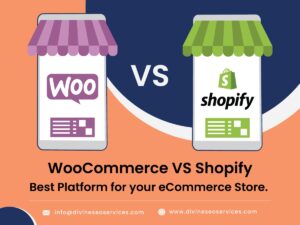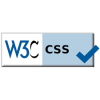![]()
Both WooCommerce and Shopify are known for the best eCommerce store development. With multiple strengths and the capability of offering various functionalities, both are possibly the perfect solution to build an eCommerce business.
- Now the question comes if which one of the two is going to fit your business needs?
Shopify or WooCommerce to create a user-friendly and functional rich online shop?
Which is more beneficial and cost-effective?
Which is more flexible and easiest to work with?
As a business proprietor, choosing the right eCommerce platform is time-consuming. But, for your business, it is necessary for you to know the right platform that fits your business needs.
This article will help you show all the details of both platforms with a detailed comparison of Shopify vs. WooCommerce. As it is a detailed comparison and informative article on Shopify vs. WooCommerce, here’s a quick table of contents:
Table of Contents
Overview: WooCommerce vs. Shopify
Here is the definition and some basic information for both platforms before starting the comparison.
What is WooCommerce?
A popular eCommerce platform WooCommerce is an open-source eCommerce plugin. It is known for its built for WordPress with multiple functionalities. WooCommerce gives benefits of the most powerful content management system (CMS) that suits best for an online store.
Because of its open-source nature, you can customize your store with all essential aspects of your store and quickly add custom extensions.
What is Shopify?
Shopify is an eCommerce platform that is an all-in-one solution for your business. With the help of the Shopify platform, your company doesn’t need any other software to manage the technical aspects such as web hosting, security, caching, and more.
It helps you make store management easy and create an online store along with accepting payments, handling your inventory, and more.
What to Look When Choosing An Ecommerce Platform?
If you don’t know what to look for while choosing an eCommerce platform, that can create difficulty.
If every other business uses WooCommerce or Shopify, you will choose it as a wrong concept because everyone’s business needs are different from yours.
Here, you must know what you are looking for, and I will help you guide with this article.
Before picking an eCommerce platform, analyze the following factors:
Getting Started
WooCommerce is easy to learn and operate if you are already familiar with WordPress. It works the same as the WordPress ecosystem.
The only difference you will find is about the installation of WordPress and WooCommerce and its maintenance.
Shopify is the most known platform and easily accessible to get started an eCommerce store online. You can create your eCommerce store on your own by going through the steps without any technical skills.
If you think this is less information, you always have the opportunity of hosting your store. With WooCommerce, your store on WooCommerce hosting is easy and accessible.
Ease of Use
Any business is looking to give as much time as the owner can provide to their online business. For business-related tasks to take customer feedback, process orders, reply to customer queries and deal with vendors.
To cover your business situation and offer the best to your customers, you need an eCommerce platform that not only creates your online store but is also simple to maintain.
The platform you choose must be easy to manage without any software or tools.
Add-ons/Extensions
To further increase the native capabilities of your eCommerce store, both the Shopify and WooComemrce platform can opt for extensions and add-ons that plug. This functionality must be performed into the platform without any issues.
When it comes to WooCommerce, it offers a host of additions, and on the other hand, Shopify sets a reasonably large App Store with nearly 500 applications. Both platforms provide you the characteristics demanded from a top-of-the-line eCommerce platform that includes CSV import of a catalog, product creation, presentation of products, delivery, customers, management of payment methods, orders, discount codes, and more.
Third-Party Integration
Any business with an eCommerce store is not just limited to a platform. Business needs to integrate with a third party, and it would be best to have several services running sides by the side.
From email marketing, payment services to social media, all these need tools and third-party integration. Your selected eCommerce platform must integrate with these tools.
Payment Gateways
In any online business, secure payment is the key. Customers trust your business more if you offer multiple payment options with security.
Payment options are an indispensable piece of Shopify as well as WooCommerce.
Let’s first see about Shopify
It gives native Shopify Payments that runs by Stripe and third-party payment gateways, such as PayPal, Amazon Payments. But, Shopify Payments is only possible in some countries.
For other countries, businesses need to integrate a third-party payment gateway.
The payment gateway for WooCommerce:
It offers in-built assistance to pick Stripe as your payment gateway. It also holds all top credit and debit cards for easy and secure payment.
Your customers won’t feel dissatisfied and able to pay quickly using Apple Pay, Google Pay, and Alipay. Stripe is an available payment gateway and available in 40+ countries and supports 135+ currencies.
Scalability and Growth
In the highly competitive and digitalized era, a business must have scalability. So, the eCommerce platform you select must have growth and offer scalability to your business rather than throw hurdles in the future.
I see businesses choose platforms with benefits and not observe future growth. Hence, any platform incompatible with a growing business or unable to customize your business is not suitable for your online business.
Accessible Hosting Options
While reliable on any eCommerce platform, hosting is crucial for all websites. During sales and special offers seasoning, hosting will offer paramount for eCommerce stores to encounter traffic bunches.
If you choose WooCommerce, you must have the provider to host your eCommerce store. Here you get the choice of server specifications in server size, bandwidth, processor, and storage. And if we hear from experts, they suggest choosing an auto-scalable hosting provider.
Here, Shopify is an exclusive platform that offers flexible and scalable eCommerce store development. When it comes to hosting, Shopify’s servers are the best. Businesses can take lots of benefits from their infrastructure with extensive storage and bandwidth.
Besides, you will get the SSL certificate if you choose Shopify along with other offers. For WooCommerce, it highly depends on what eCommerce hosting solution you choose.
Customization
For any eCommerce business, the essential thing is the user interface (UI). It helps to create a great impression on the visitors.
If you are choosing the WooCommerce platform, it does not have its theme store for customization. But, you will find excellent and attractive themes at marketplaces. Also, make sure your visitors have a seamless experience when they first come to your online store.
While selecting the theme, go for a lightweight, responsive theme, as it will help you perform better if you increase your productivity in the future.
Shipping Methods
If you are looking to set your shopping cost, WooCommerce and Shopify enable you to do based on several parameters: local and international delivery, size and weight of products, and more.
Some businesses go upto a higher level by adding a real-time calculation of shipping costs with different delivery options like UPS and FedEx.
In WooCommerce, a business needs to buy a plugin to add all the required elements.
And in the Shopify platform, a business needs to choose the smallest to Advanced Shopify plan to add functionality in an online store. Besides, Shopify has partnerships with well-known product delivery that consists of Amazon and others.
User Friendliness
Any online business must be user-friendly, and when it comes to an eCommerce store, user-friendliness is a must. WooCommerce platform offers a lot of integrity and customization where you can ask developers to code and offer user-friendliness. For any advanced customization, an eCommerce development company will help you in developing the best solution.
The same goes with the Shopify platform, where the drag and drop interface gives a business a much friendly UI that satisfies users to find the items.
Which eCommerce Platform is Best for SEO?
If we talk about WooCommerce, it is better for SEO and helps to optimize search engines. As WooCommerce offers SEO-focused plugins and more content marketing capabilities, it is best for SEO.
Specially for the blog section, everything a business is looking to add a blog and get ranking is possible here. With WooCommerce, blogs are well optimized and powered by WordPress.
On the other hand, Shopify has a blog function, but it does not work the same as WordPress. Here, the business could link the Shopify blog to WordPress for better results.
WooCommerce vs. Shopify: Pricing
For any business, to determine, the cost factor is the key. In eCommerce, it is recommended to identify and compare the cost while choosing the platform.
For example, WooCommerce is free to use, but that doesn’t mean you will run a WooCommerce store for free. There are several costs attached to run your online store on a WooCommerce platform. Here, Shopify seems a little cheaper as the plans available are cost-effective, and you can choose as per your need.
However, if you consider the external plugins and plans for the same, Shopify is expensive.
Is Shopify or WooCommerce Safer?
Online businesses rely on information and customers satisfaction, where safety is the essential factor.
The difference between these two platforms comes to the primary path.
-> As per Shopify, “We’ll look after your data. Trust us.”
-> WooCommerce says, “Look after your data. It’s important.”
WooCommerce, as mentioned, is an open-source and self-hosted platform where storing and securing your data is up to you.
On the other hand, Shopify looks at your data, and you don’t have to worry about it. It offers many ways to access it, like API data connections, CSV export, and site backup through an application.
Shopify once had a data breaches issue in 2020 due to insider actions, but both are safe to develop an eCommerce store.
Conclusion
Shopify Pros and Cons
Pros
- Considering the business online, pricing is fair.
- You will get thousands of apps to extend your store.
- Fast and flexible: It takes few minutes to launch your store.
- The themes available are productive and attractive.
- It manages everything, from hosting to security.
- Dropshipping is comparatively simple with Shopify.
- The help and support service of Shopify is excellent in business.
Cons
- You don’t have as much control over your business site.
- Customization is a little disappointed.
- For advance use, you need a monthly plan.
WooCommerce Pros and Cons
Pros
- WooCommerce platform allows complete customization.
- Your business site is in your control.
- It works like WordPress and has a vast community online.
- The themes and plugins are endless because anyone can create and sell them.
- It is easy to configure on WordPress.
- The WooCommerce plugin is free.
Cons
- WordPress does have a learning curve.
- It is more expensive as compared to others due to plugins, themes, and hosting.
- You may be stuck handling the store on your own, from hosting to security and maintenance.
FAQs about Shopify vs. WooCommerce
- How is WooCommerce different than Shopify?
Shopify provides a platform as a service and gives software and website hosting for your online store. Shopify also manages data and security along with backup and maintenance.
WooCommerce is a self-hosted work well to develop an eCommerce store. It gives a hosting account and a domain name, but users have to manage the rest.
- Which one is more popular, Shopify vs. WooCommerce?
WooCommerce is said to be a popular eCommerce platform, but Shopify works the same. WooCommerce is used on 27% of the top 1 million websites, whereas Shopify gets 21%.
● Should I Switch from WooCommerce to Shopify?
If you are struggling with technical issues, you can switch to Shopify. Switching to WooCommerce may lead you to some loss when you find Shopify’s platform cuts you off from choices, and the payment plans are costly.
- Can I use Shopify with WordPress?
Yes, you can use “Shopify Lite” with WordPress by installing Shopify’s Buy Now button. This implementation will take you to the Shopify cart to complete the checkout.
- Which eCommerce platform is more flexible?
WooCommerce will give more flexibility due to its more significant extensions, and also it runs with WordPress. So, WooCommerce is suitable for blogging and a business website at the same time.


















